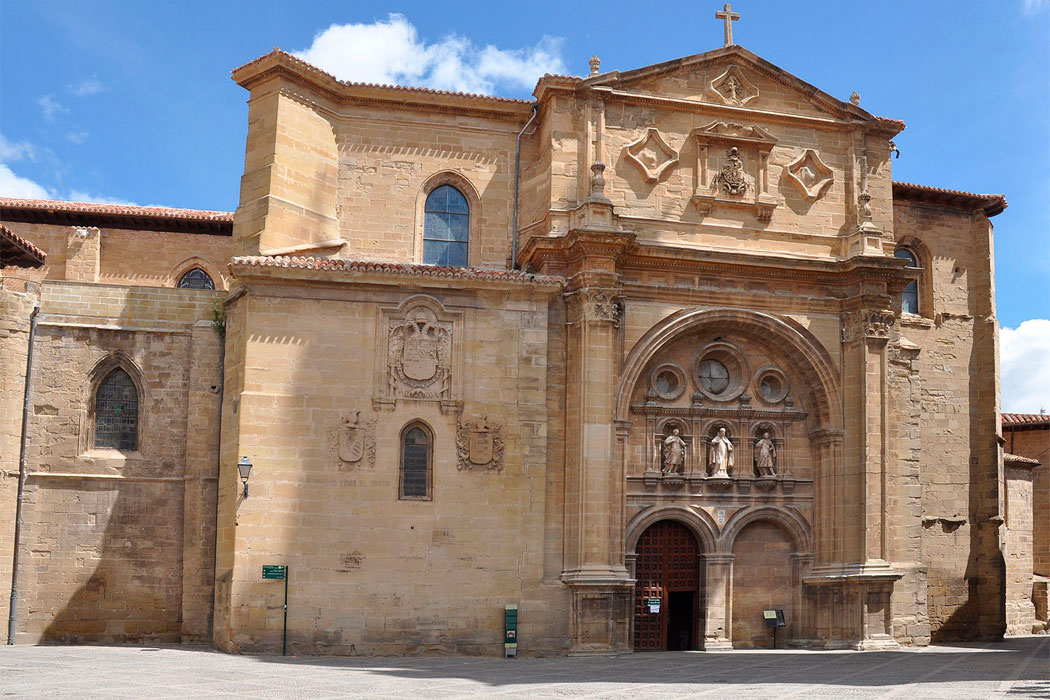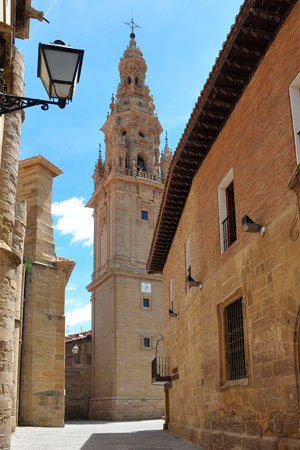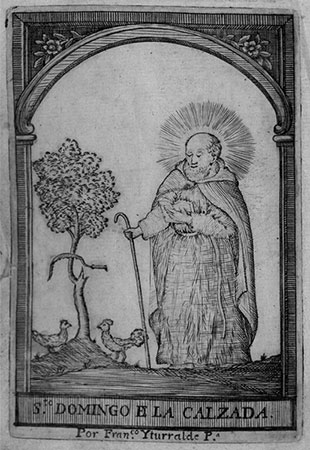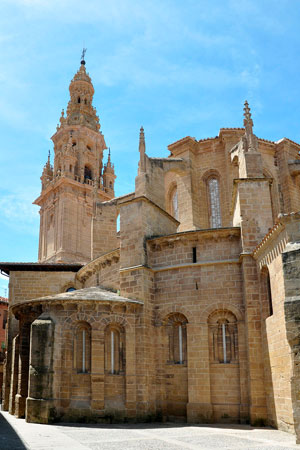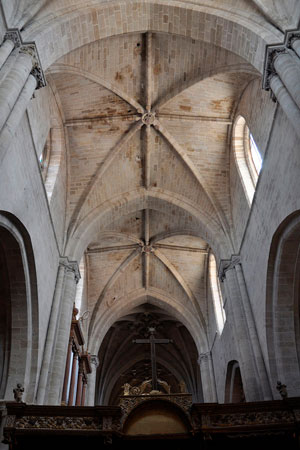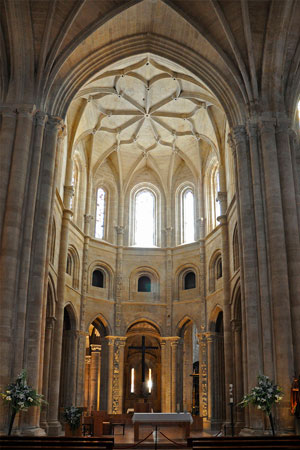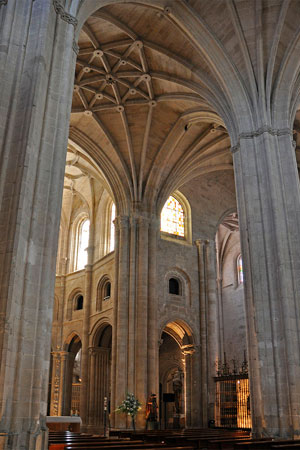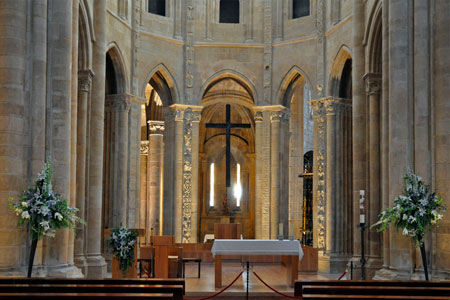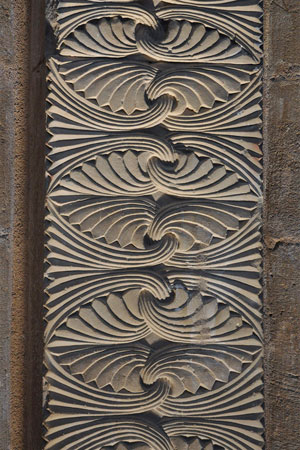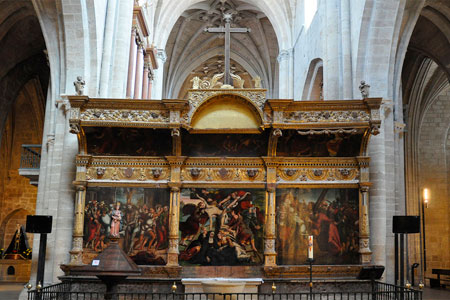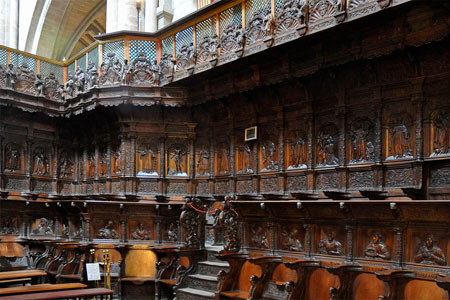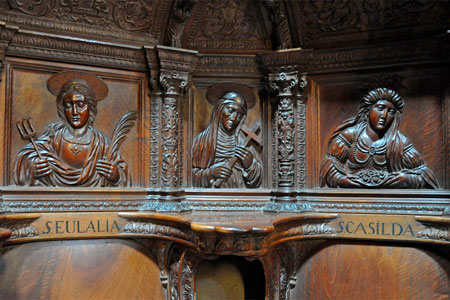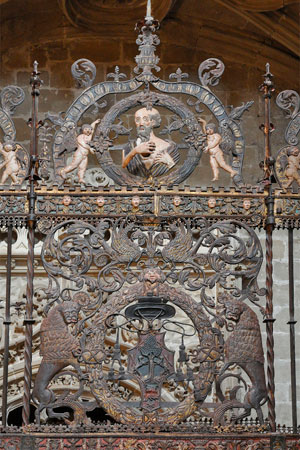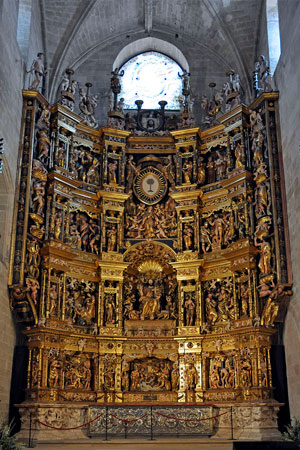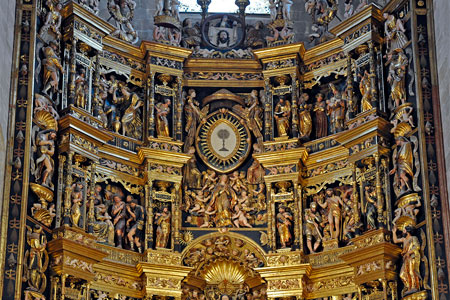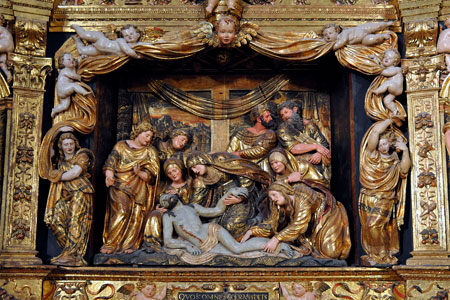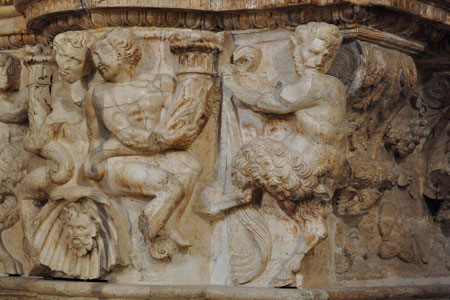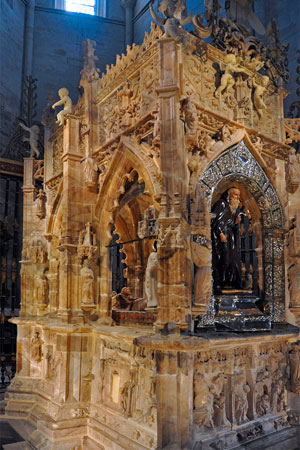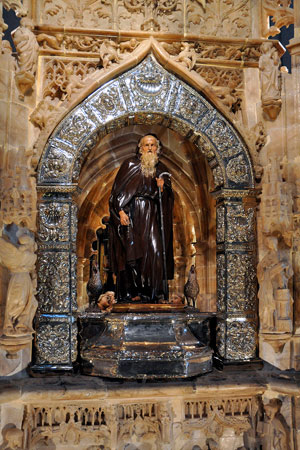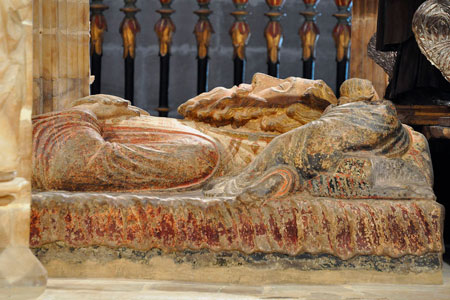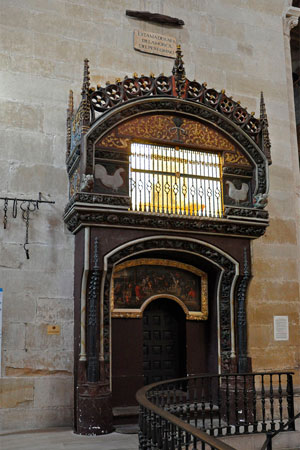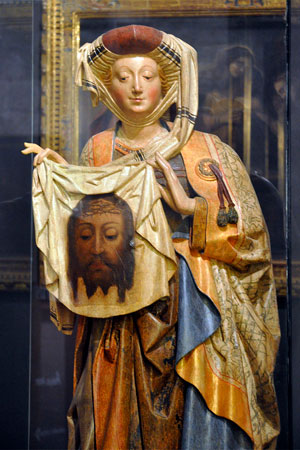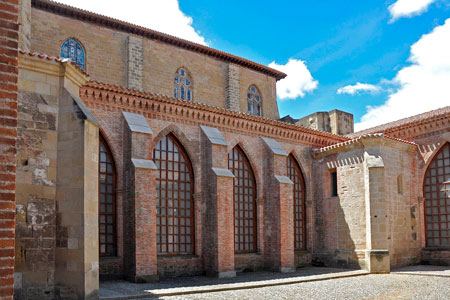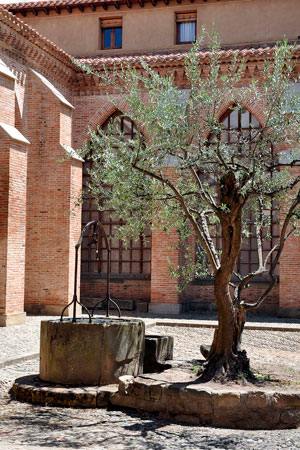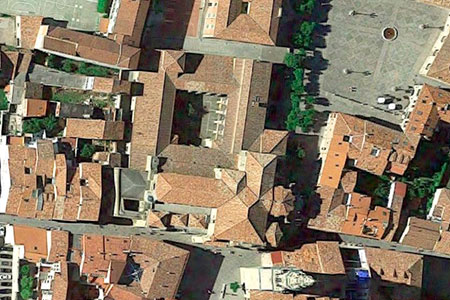Canonry of Santo Domingo de la Calzada
Cathedral of San Salvador de Santo Domingo de la Calzada
(Santo Domingo de la Calzada, La Rioja)
The origin of the current cathedral of Santo Domingo de la Calzada is to be found in the figure of Saint Dominic de la Calzada, who died in this place in 1109. He had built a church where the cathedral now stands, a construction that was completed shortly before his death and consecrated by Bishop Pedro de Calahorra in 1106, dedicating it to El Salvador.
In 1137, the church of San Salvador became part of the Diocese of Calahorra after a dispute with Burgos, and it is known that there was a canonry in this church, which is thought to have been established in 1125. In 1158, the bishop of Calahorra, Rodrigo de Cascante, began the construction of a new church with the particularity that the new building was to dignify the tomb of Saint Dominic, moving it inside. This new building was already in use in 1180. The last bishop of Calahorra reorganised the collegiate church in 1223. For security reasons, Pope Gregory IX ordered the transfer the Diocese of Calahorra to Santo Domingo de la Calzada in 1228, with the logical opposition of the former, which ended up maintaining the diocese with two sees: that of Calahorra and that of Santo Domingo de la Calzada.
Born in Viloria, of humble origins, he tried to lead a monastic life, but failed, més endavant va acompanyar al bisbe Gregori d'Òstia en el seu apostolat per terres de La Rioja. In 1044, when Gregory died, Dominic withdrew to the banks of the River Oja, where he devoted himself to attending to the pilgrims on this part of the Way of St. James. He was involved in the construction of roads and a bridge over the Oja, hence the nickname of Calzada. Respected in life and known for his miracles, he received the support of Alfonso VI of Castile. He died in 1109 and was buried in the chapel he had built in the place now known as Santo Domingo de la Calzada, which would later become a cathedral.
From 1250 onwards, the rights over the town of Santo Domingo passed from the canonry to the Crown, with the corresponding loss of power. It was probably at this time that the canonical church became a cathedral church. The cathedral began to be built in 1158, the present-day chancel is from that time, with some radial chapels added later. Most of the naves of the church were built at the end of the 13th and beginning of the 14th century. Other outbuildings such as the cloister and the chapter house were added later. In the 18th century, further modifications, additions and repairs were made, including the bell tower (1762-1766), separated from the body of the building.
- ALAMO, M. (1949). Calzada. Dictionnaire d'histoire et géographie ecclésiastiques. Vol. 11. París: Letouzey et Ané
- ALONSO MARTÍNEZ, Ignacio (1890). Santo Domingo de la Calzada, recuerdos históricos. Haro: Pasamar
- ALONSO, Niceto; i altres (1886). Diccionario de ciencias eclesiásticas. Vol. 2. València: Domènech
- AZOFRA, Eduardo (2003). La catedral de Santo Domingo de la Calzada. Lleó: Edilesa
- DE SILVA Y VERÁSTEGUI, Soledad (2005). Los sepulcros de los santos constructores del Camino a Santiago de Compostela. Los caminos de Santiago. Arte, Historia y Literatura
- DEL SALVADOR, José (1787). Compendio de la vida y milagros de Santo Domingo de la Calzada. Pamplona: Cosculluela
- FERNÁNDEZ, José M. (1992). Santo Domingo de la Calzada, guía de la catedral. Cabildo de la S. I. Catedral de Santo Domingo de la Calzada
- MOLAS, C. M. (1960). Dominique de la Calzada. Dictionnaire d'histoire et de géographie ecclésiastiques. Vol. 14. París: Letouzey et Ané
- PRIOR UNTORIA, Agustín (1948). Notas sobre la historia de la catedral de Santo Domingo de la Calzada. Berceo, núms. 6-9
- SÁNCHEZ AMEIJEIRAS, Rocío (2004). La ritualización del camino de vuelta: nuevos hallazgos sobre el sepulcro de Santo Domingo de la Calzada. Instituto de Estudios Riojanos
- SÁNCHEZ TRUJILLANO, María Teresa (1993). Restos Mudéjares de la Catedral de Santo Domingo de la Calzada: El alfarje de la sala capitular. Instituto de Estudios Riojanos
